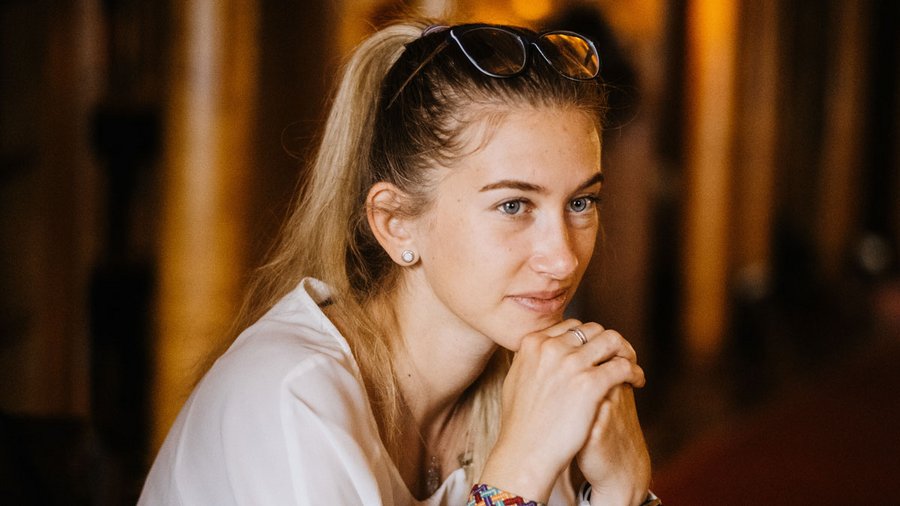Olha Lykova on women-founded Ukrainian open-source database DATTALION and her time at Salzburg Global session
Information is powerful. During times of war, finding out what is truly happening on the grounds can be made difficult by propaganda from either side of the conflict. This is where DATTALION comes in.
First publicly launched on March 6, 2022, DATTALION, Ukraine’s “Data Battalion”, was founded by women in Ukraine and is home to the largest free and independent open-source database of photo and video footage from the war, along with a database of verified eyewitnesses in Ukraine’s war hotspots. Run by over 100 Ukrainian and international volunteers, 98% of them women and 48% of them staying in Ukraine.
“The main idea for the creation of DATTALION is when the war began, we watched international news and understood that even from the beginning, there were no sources that showed the real picture of what was happening in Ukraine. We also understood that journalists would not come to Ukraine, they would not put people in dangerous places. We can be the main source for journalists, for lawyers, for people working in governments outside of Ukraine, to show what is happening”, explained Olha Lykova, project manager of the Ukrainian Corporate Governance Academy and Data Collection Team Lead at DATTALION.
Olha is a Salzburg Global Fellow, who recently participated in the session Connecting and Supporting Ukrainian Civil Society in Time of War.
DATTALION’s main goals? Empowering media around the world to tell their audiences the truth about Russia’s invasion of Ukraine, as well as collecting and storing evidence of war crimes, environmental crimes, crimes against humanity, and acts of genocide against Ukrainians. Also, “by sending an explicit warning and sharing unambiguous factual evidence about the threat Russia poses to the democratic international system, make clear to the world the vital need to stand with Ukraine to win this war”, according to DATTALION’s website.
Olha sees her work with DATTALION as a way to fight the war without being on the front lines. “We always talk about what we can do to support Ukraine. As men, they go to war. We decided to start this volunteer project to help on the internet, to help share the truth and win this war for Ukraine.”
DATTALION has three levels of information. The first is official sources, for example from trusted government officials. there are also trusted sources which include journalists and people whose information has always proved reliable. Then there are eyewitnesses and unverified sources, who are able to send in videos anonymously.
The organization is not just a Ukrainian affair. “We have an international group of volunteers. We have for example an American team that helps us reach other countries and governments, showing them proof of what is happening. If people want to join us, we welcome everybody internationally and we are open to new positions.”
Why did Olha decide to join DATTALION? “When the war first starts, you only scroll the news, you cannot do other things. I was very glad when my colleague wrote to me and said they needed volunteers for this initiative. It was difficult, because you work and you hear a lot of noise, bombs, but you distract yourself from thinking about only war.”
Olha saw the Salzburg Global program as a good opportunity to share her knowledge with peers, share what DATTALION is doing, and what needs they might have. “I was glad to get to know new people and to listen to them because a lot of them have very different profiles, which inspires me. People also have volunteer organizations but that started in 2014 for example and you realize that it’s not only about now, but about the past. People have worked a long time to win the wars that we have now.”
After the session, Olha feels ready to go back to Ukraine. “The first step is negotiation with other people, with other projects, maybe combining ideas. I feel more powerful in terms of inspiration to do more. We have come here, relaxed a bit after the war and now we have more strength for the future.”
The Fellows of this session have drafted a Salzburg Statement, in which they set out the priorities and recommendations from Ukrainian civil society identified at this meeting.
To read the Salzburg Statement, click here.


